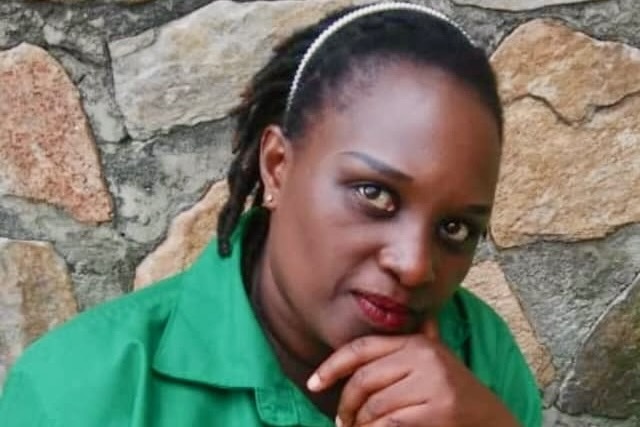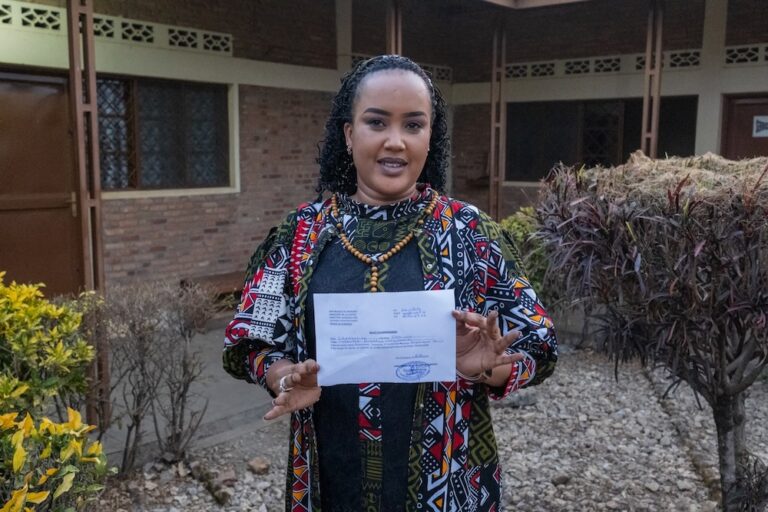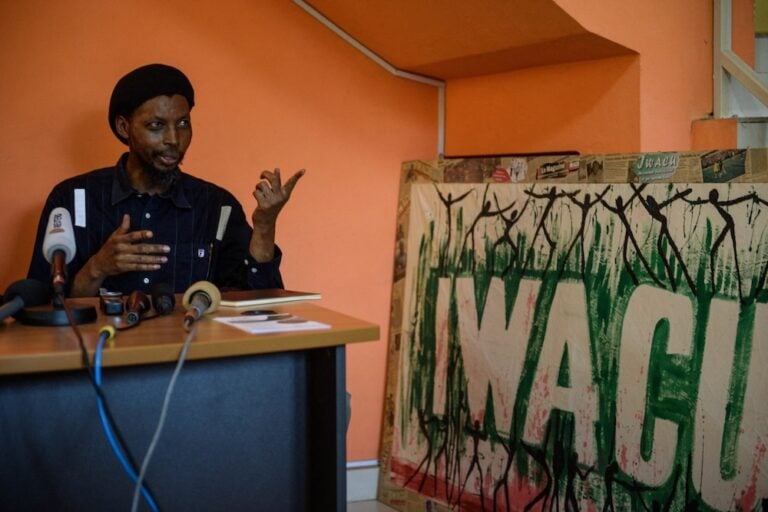(RSF/IFEX) – In a letter to Minister of Defence Cyrille Ndayirukiye, RSF protested the arrest of journalist Alexis Sinduhije, in Bujumbura. “The journalist was detained because he tried to cover an event that the press was barred from covering. He did nothing more than exercise his right to inform, and nothing can justify his arrest […]
(RSF/IFEX) – In a letter to Minister of Defence Cyrille Ndayirukiye, RSF protested the arrest of journalist Alexis Sinduhije, in Bujumbura. “The journalist was detained because he tried to cover an event that the press was barred from covering. He did nothing more than exercise his right to inform, and nothing can justify his arrest and the poor treatment to which he was subjected,” stated Robert Ménard, the organisation’s secretary-general.
According to information collected by RSF, Sinduhije, director of the private Burundian radio station Radio publique africaine, was arrested and taken to the offices of the Special Investigations Bureau (Bureau spécial de recherche, BSR) on the evening of 19 October 2001. He was released the next day after paying a 20,000 Burundian Franc (approx. US$24; 27 euros) fine. The journalist was beaten and insulted during his detention. Certain officers accused him of interviewing one of the South African soldiers dispatched to Burundi in order to protect Hutu political personalities who returned from exile. The arrival of these soldiers the previous evening took place very quietly. No information about the event was given to the national and international press. In a telephone conversation with RSF, Sinduhije said, “I am going to file a complaint against Colonel Nahimana and Major Ntemako, who arrested me and ordered that I be beaten. Only one soldier expressed his opposition to this violence.”
The organisation recalled that on 10 March, Bonesha FM journalist Léon Masengo, Radio publique africaine journalist Jacqueline Segahungu and Reuters cameraman Jean-Pierre Aimé Harerimana were arrested while on their way to the Bujumbura airoport, where they wanted to cover Epitace Bayaganakandi’s return from an international tour. Bayaganakandi was a presidential candidate for the G6, a coalition of six Tutsi parties. Masengo was beaten by police officers (see IFEX alert of 13 March 2001).


